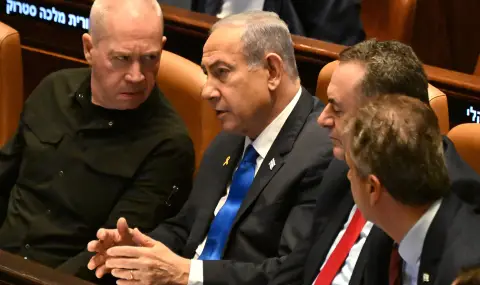The International Criminal Court (ICC) in The Hague has issued arrest warrants for Israeli Prime Minister Benjamin Netanyahu, former Defense Minister Yoav Galant and Hamas leader Mohammed Deif (who Israel says has been killed). The orders relate to alleged war crimes committed in the course of the conflict between Israel and Hamas, including the actions of October 7, 2023. and the subsequent strikes in Gaza, reports News.bg.
The issuance of the arrest warrants is an extremely significant event in the context of the ongoing conflict between Israel and Hamas.
Reasons and legal basis:
- Charges: The warrants were issued for alleged war crimes committed in the course of the conflict, including Hamas attacks on Israel on October 7, 2023. and the subsequent actions of Israeli forces in Gaza, which resulted in significant civilian casualties.
- Jurisdiction of the ICC: Although Israel does not recognize the jurisdiction of the ICC, the Palestinian Authority, which is a member of the court, provides a legal basis for the court's actions.
Implications:
-
Escalation of tensions: This decision could deepen the political crisis and tensions in the region by increasing international pressure on both countries.
- Legal Ambiguity: Israel rejects any legitimacy of these actions by the ICC. Hamas, for its part, is the subject of international accusations of terrorism.
- International response: Arrest warrants can have serious diplomatic consequences, especially for states that recognize the jurisdiction of the ICC. If any of the accused visit such countries, they are bound to take action for their arrest.
Implementation Challenges:
- Israel's position: Israel is not cooperating with the ICC and has no intention of handing over the accused.
- The complexity of the conflict: Both parties to the conflict are accused of acts that violate international humanitarian law, which complicates the possibility of achieving justice.
This step by the ICC is symbolic and legally important, but the probability of its actual implementation remains low in the short term. The decision puts the international legal system to the test and could increase pressure for a political settlement of the conflict.
